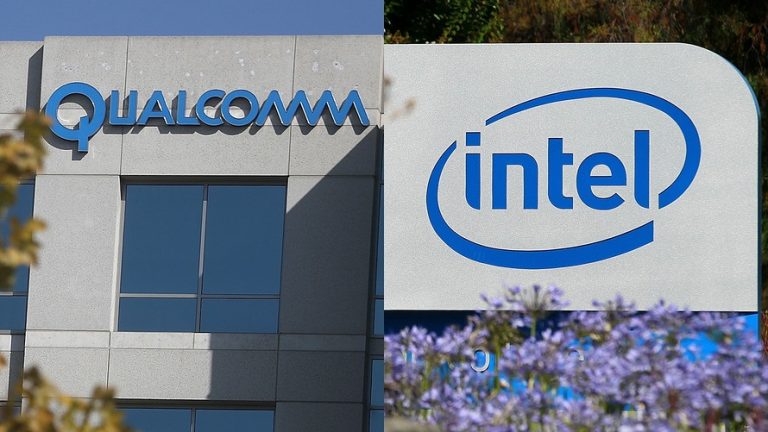
Qualcomm recently made a move toward acquiring struggling chipmaker Intel, sources cited by CNBC confirmed, marking a potential mega-deal in the technology industry.
This news, initially reported by the Wall Street Journal, caused Intel’s shares to jump by 3%, while Qualcomm’s stock fell by a similar margin. If this deal were to materialize, it could become one of the largest technology mergers in history, given Intel’s current market capitalization of over $90 billion.
However, it’s unclear whether Intel has engaged in discussions with Qualcomm or what terms were proposed, as the details remain confidential, according to a source familiar with the situation.
Register for Tekedia Mini-MBA edition 19 (Feb 9 – May 2, 2026): big discounts for early bird.
Tekedia AI in Business Masterclass opens registrations.
Join Tekedia Capital Syndicate and co-invest in great global startups.
Register for Tekedia AI Lab: From Technical Design to Deployment (next edition begins Jan 24 2026).
Intel’s Decline and Qualcomm’s Interest
Intel, once the world’s largest chipmaker, has faced a prolonged downturn that worsened in 2024. After reporting disappointing earnings in August, Intel’s stock took its largest one-day drop in over 50 years. For the year, Intel shares are down 53%, with investors questioning the company’s expensive plans to manufacture and design its own chips.
Intel’s ongoing struggles may have prompted Qualcomm’s approach. Although both companies compete in markets like PC and laptop chips, Qualcomm operates differently from Intel. Unlike Intel, Qualcomm doesn’t manufacture its own chips, relying instead on third-party manufacturers like Taiwan Semiconductor Manufacturing Company (TSMC) and Samsung.
Intel’s financial difficulties also come amid its costly foundry business project, which CEO Patrick Gelsinger reiterated in a memo following a board meeting. The project could cost $100 billion over the next five years as Intel aims to build its own chip manufacturing capacity. The company is also exploring outside investment to support this ambitious endeavor, further reflecting its need for external funding.
The Missed AI Opportunity
Another blow to Intel has been its absence from the artificial intelligence (AI) boom that has captured the attention of Wall Street. While AI programs, including OpenAI’s ChatGPT, rely on Nvidia’s graphics processing units (GPUs), Intel’s central processors (CPUs) have struggled to capture a share of this rapidly growing market. Nvidia currently dominates the AI chip market, holding over 80%, a position analysts say Intel has missed out on.
Qualcomm, while not as large as Intel, reported $35.8 billion in sales for fiscal year 2023, compared to Intel’s $54.2 billion. This potential merger could bring synergies between Qualcomm’s efficient, design-focused model and Intel’s manufacturing expertise, though integrating these companies would be no small feat.
However, any potential deal between Qualcomm and Intel would likely face significant regulatory scrutiny, especially given past failures in major semiconductor mergers. Both companies do business in China, and previous acquisition attempts have been blocked by Chinese antitrust authorities. Intel’s attempt to acquire Tower Semiconductor and Qualcomm’s bid to acquire NXP Semiconductor were both thwarted due to regulatory pushback.
On a broader scale, government intervention has derailed other large chip-related mergers. In 2017, Broadcom’s $100 billion bid for Qualcomm was blocked by the Trump administration on national security grounds, as Broadcom was then headquartered in Singapore. Additionally, Nvidia’s attempt to acquire Arm for $40 billion in 2021 faced antitrust lawsuits from the U.S. Federal Trade Commission (FTC) and opposition from European and Asian regulators, ultimately leading to the deal being scrapped in 2022.
Potential Complications
The merger of Qualcomm and Intel would likely face complex challenges. Apart from antitrust issues, both companies’ significant exposure to the Chinese market could attract scrutiny from multiple governments. The broader trend in the semiconductor industry has seen governments around the world tighten their control over chip manufacturing and technology transfers, as evidenced by the U.S. government’s restrictions on chip exports to China and Europe’s focus on maintaining technological independence.
A potential Qualcomm-Intel deal would therefore require approval from regulators across several major markets, including the U.S., China, and Europe. The geopolitical ramifications, given ongoing trade tensions between the U.S. and China, would likely add another layer of difficulty to the deal.
Qualcomm has initiated acquisition talks with chipmaking competitor Intel, but an agreement is “far from certain,” The Wall Street Journal reported, citing anonymous sources. With a market value of $93.2 billion, an Intel takeover would be one of the largest tech pacts ever, and the deal would almost certainly draw antitrust scrutiny. Qualcomm’s overture comes at a turbulent time for Intel, which has embarked on turnaround initiatives, including cutting 15% of its workforce. Earlier this week, Intel announced it would create an AI chip for Amazon and spin off its foundry business.



